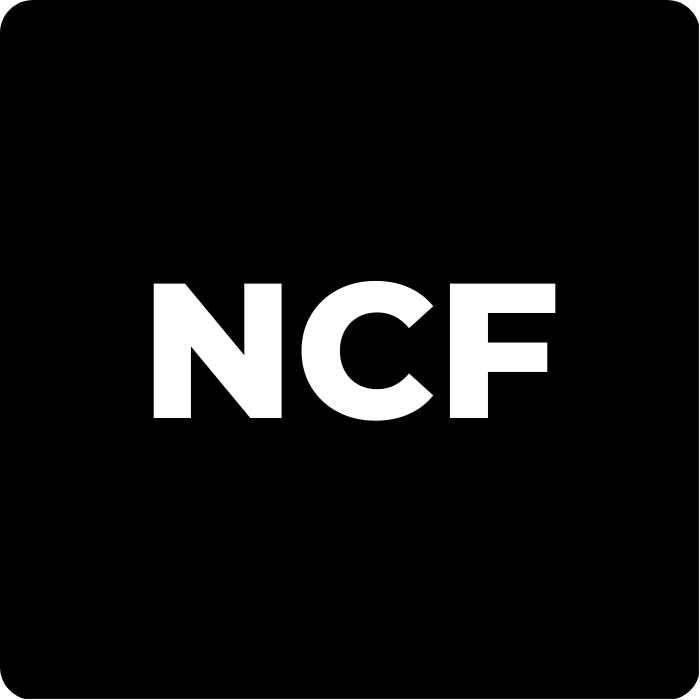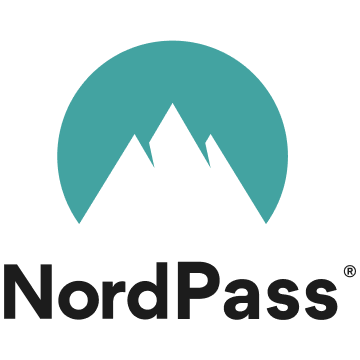As you turn your startup into a profitable business, you must consider one crucial aspect – its reputation. Investors and other organizations are more likely to work with a reliable partner that adheres to regulatory compliance. But with so many regional and international compliance policies and certifications, where should you start, and what should you focus on?
The good news is you don’t need to handle the entire compliance process alone. Employing cybersecurity tools like password managers can simplify the procedures and bring your startup one step closer to regulatory standards. Let’s find out how you can get your startup compliance-ready and how a password manager can aid you in this journey.
Why does compliance matter?
Regulatory compliance comprises standards businesses must follow to be ethical, reputable, and transparent. Failure to adhere to cybersecurity compliance can harm a company’s reputation, financial stance, and the legality of its operations.
Some regulatory compliances are recognized internationally and apply to multiple countries worldwide. Others are regional and may only be required in a particular country or state. Depending on your startup’s business model, you may adhere to either international or regional regulations. Compliance policies can also be set up by industry groups or professional organizations. This means that you may need to meet such requirements to join certain memberships or unions.
While it can seem that simply following the rules is enough to build a positive business reputation, proof of regulatory compliance is a badge of honor. It shows that your organization has taken rigorous steps to adhere to industry standards. Businesses display their proof of compliance accreditation, including auditing and policy adherence, through official logos on their websites or at brick-and-mortar establishments.
In most cases, regulatory compliance is mandatory, and its processes are continuous. Once your organization has reached the particular requirements, it must uphold the standard. Otherwise, you run the risk of having to pay a fine or losing the accreditation altogether. In 2023, tech giant Meta had to pay a 1.2 billion euro ($1.3 billion) fine for mishandling user data and failing to comply with the GDPR.
Being compliant can also give your startup a competitive edge. If, for example, it earns official accreditation relatively early into its growth, its employees, customers, partners, and competition will know that you can be relied on in terms of transparency and accountability. The process of compliance accreditation typically involves setting up clear internal procedures, leading to improved processes and risk management within your organization. In short, it’s practical for your startup and reliable for your clients.
What do password managers have to do with compliance?
As we’ve already established, the compliance framework you choose to prioritize may depend on your locale and operations. Furthermore, you need to keep an eye out for any changes, as the requirements are frequently changing.
As such, the manual work of keeping all your resources and documentation in order can get tedious. To alleviate this burden, organizations often turn to tools that assist with compliance processes. Here’s where password managers enter the conversation. They help implement strong security measures for processing and storing personal data, such as names, addresses, login credentials, or credit card details.
Password managers are built using encryption and zero-knowledge algorithms that provide compliance-approved protection. They allow companies to easily centralize strong password policies and implement secure access management solutions. This helps manage access privileges and ensure data security during organizational processes like onboarding, offboarding, or information sharing. Some password managers even come equipped with breach monitoring features for quick response to cyber incidents.
The broad scope of password managers’ functionalities makes them suitable tools for adhering to many regulatory requirements. Here are some of the compliance frameworks that can be aided with a password manager.
HIPAA
HIPAA, or the Health Insurance Portability and Accountability Act, enforces how healthcare institutions must securely handle personally identifiable information. While it primarily applies to healthcare providers in the US, anyone who handles personal health information must adhere to HIPAA.
NordPass helps organizations maintain HIPAA-adherent practices by:
- Storing confidential data in an encrypted vault.
- Allowing secure item sharing between an organization’s members.
- Supporting multi-factor authentication as an extra security layer.
- Restricting access to sensitive data to authorized individuals only.
GDPR
The General Data Protection Regulation (GDPR) is a data privacy legislation for organizations operating in the EU and the European Economic Area (EEA). It sets the rules for how organizations can collect, use, and store users' personal information online. The GDPR gives users more control over how their personal data is handled.
NordPass can help organizations work toward meeting the GDPR standards by:
- Enhancing data security through robust encryption and access controls.
- Offering breach monitoring and alerts.
- Providing secure data storage and management tools.
- Allowing organizations to generate transparent audit trails and access logs.
- Centralizing password management and implementing strong password policies.
CCPA
The California Consumer Privacy Act applies to organizations operating in California and provides data access measures to California residents. It’s functionally similar to the GDPR, as it centers the users’ rights to data access and management. Companies that comply with the CCPA must provide transparent information on their data collection and management practices.
An amendment to the CCPA, the California Privacy Rights Act (CPRA), adds “sensitive personal information” to the limitations when doing business. This means usernames and passwords fall under data management compliance.
NordPass can assist organizations with the CCPA requirements by:
- Ensuring the use of unique and complex passwords within an organization.
- Supporting centralized password policies.
- Sharing passwords between encrypted vaults for secure collaboration.
- Restricting access to data to authorized users only.
PCI DSS
PCI DSS stands for Payment Card Industry Data Security Standard. Its requirements help ensure that organizations appropriately handle all processes related to credit card information, such as storing and transmitting data.
NordPass can help organizations meet the PCI DSS compliance requirements by:
- Allowing organizations to create strong and reliable login credentials.
- Providing encrypted data storage for all passwords.
- Enabling admins to assign employees roles and permissions to control access to sensitive data.
- Supporting multi-factor authentication for additional security.
NIST
The NIST Cybersecurity Framework was established by the National Institute of Standards and Technology. This universal standard provides companies, ranging from small startups to established enterprises, with clear guidelines for password management, such as the recommended composition, length, reuse, and secure storage of passwords.
As a password manager, NordPass helps organizations meet NIST requirements by:
- Allowing organizations to store passwords in a single secure place.
- Supporting easy and secure access to sensitive data via cross-platform synchronization.
- Providing secure sharing between encrypted vaults for collaboration.
- Letting organizations set up centralized password policies to determine the strength of login credentials.
- Providing secure multi-factor authentication.
- Continually updating security measures in response to new and existing threats.
- Generating detailed reports and analytics on password usage and activity.
SOC
System and Organization Controls, or SOC, is a compliance standard developed by the American Institute of Certified Public Accountants (AICPA). Unlike frameworks like the GDPR or CCPA, SOC is voluntary, meaning that you can submit a request for an attestation on your company’s behalf.
NordPass helps organizations meet the SOC requirements by:
- Offering encrypted protection for sensitive customer and personnel data.
- Employing additional security measures like MFA.
- Allowing admins to assign, change, and revoke access privileges to stored data.
- Creating transparent logs for auditing and documenting organizational activity.
NordPass itself has acquired the SOC 2 Type 2 attestation.
ISO 27001
ISO/IEC 27001 is a globally recognized framework for information security management. It ensures that entities follow the correct measures for risk assessment and maintain their information management systems.
NordPass can be used to help adhere to the ISO framework by:
- Implementing a centralized password policy and ensuring all credentials are strong and regularly updated with Password Health.
- Encrypting and protecting all data stored in the vault with XChaCha20 and zero-knowledge architecture.
- Ensuring authorized access with the use of a Master Password or biometric verification.
- Notifying organizations about detected breaches via the Data Breach Scanner.
NordPass’s information management systems are certified according to ISO 27001.
How can NordPass help ease your road to compliance?
NordPass understands the challenges and diligence required for regulatory compliance. In fact, our Business product has acquired the SOC 2 Type 2 attestation. We don’t just explain to our clients how to meet the standards – we provide them with the tools to turn theory into reality.
Using the NordPass Business password manager, you can easily establish secure data management policies in your startup. Our XChaCha20-encrypted vault is based on the zero-knowledge architecture, ensuring that no one but the real owner of the data can access it. The vaults also support secure credentials sharing, eliminating the need for unencrypted measures like publicly available spreadsheets with login details and payment information.
With NordPass, you can protect your organization internally and reach the required password protection standards by checking credential strength with Password Health and setting up a centralized Password Policy. You can stay ahead of incidents and learn if your company’s sensitive data has appeared on the dark web thanks to real-time alerts provided by the Data Breach Scanner. Start establishing your startup’s cybersecurity ecosystem and maintain a high level of regulatory compliance.
Want to make your road to compliance simpler with NordPass? We’ve got you covered. As a No Code Founders community member, you can claim three months of NordPass Business for free. All you have to do is use our special link and enter the code “NCF” in the form. Once the trial is over, you can get the plan for up to 20% off. To claim the discount, contact our team at sales@nordpass.com and mention No Code Founders in the subject line.
Don’t let the compliance procedures overwhelm you — work with cybersecurity professionals to secure both your team and your clients.


